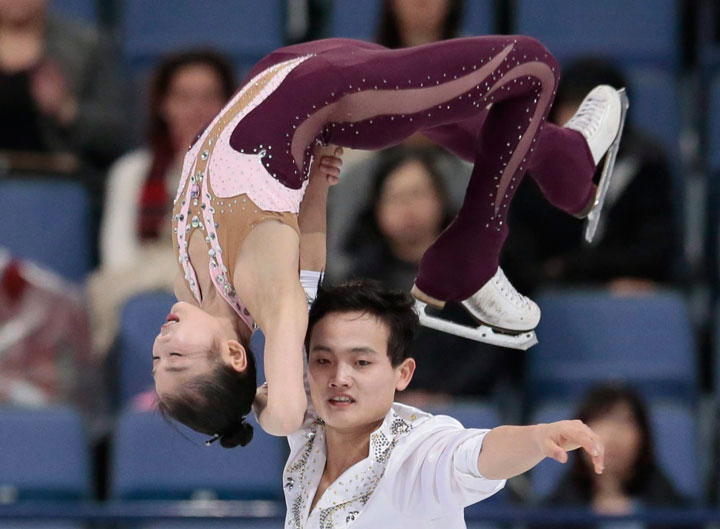North Korea will be sending more than 400 people to the Winter Olympics in PyeongChang, South Korea, in February, officials confirmed Wednesday. The two countries will march together under a unified flag in the opening ceremony.

The North Korean delegation will include athletes, coaches, a cheerleading squad, and an orchestra. And, experts say, among them will be various security and intelligence agents.
At least one third of the delegation will be intelligence agents or working in intelligence-related jobs, estimated Greg Scarlatoiu, executive director of the Committee for Human Rights in North Korea, a Washington-based human rights organization. He admits this is a “wild guess” but expects that there would be one intelligence minder for every two or three participants.
The big reason: possible defections. There are roughly 31,000 North Korean defectors living in South Korea, and more than 1,000 people have defected every year over the last five years.
North Korea has participated in other Olympics without anyone defecting, but Scarlatoiu thinks there is “always a chance” that someone might try. And, it would be a “tremendous embarrassment” if even one person did defect, he said, so North Korea will do everything it can to prevent it.
Keeping watch
First of all, the North Korean government carefully selects who is allowed to travel. “Like most intensely repressive governments, North Korea subjects its people to intrusive surveillance and keeps detailed dossiers on many of its citizens,” said Phil Robertson, deputy director of Human Rights Watch’s Asia Division.
“Pyongyang will first reference the songbun system, its hereditary loyalty classification system that sorts the entire populace into loyal ‘core class,’ a middle ‘wavering class,’ and a ‘hostile class.’ Only the most loyal persons from the ‘core class’ will be selected to represent the country at such a high profile international event as the Olympics.”
Scarlatoiu said that just to be trained as a performer, you’d have to come from a loyal family. “Moreover to travel to South Korea, your songbun must be off the charts.”
But once in South Korea, it’s unlikely that North Korean athletes and performers will be able to move around freely. “Nobody’s ever alone. You’re at least travelling in pairs,” Scarlatoiu said. “But most likely in addition to travelling in pairs, there is a security agent tasked to basically keep an eye on each and every athlete. You’re not allowed to leave your sleeping quarters without the approval of the authorities and the minders.”
“This is how the Soviets did it, this is how the Eastern Europeans did it. Multiply that by 1,000 and you have the North Korean model.”
Kim Kwang-jin, a North Korean defector and researcher at the Institute for National Security Strategy, told Reuters in early January that members of the delegation will also spy on each other. “The North is also expected to divide its delegation into groups and ask them to monitor and control each other so that no one would leave the group,” he said.
People will also be discouraged from defecting by threats against their families, Robertson said.
“The North Korean authorities will make sure to keep the families of those going to the Olympics under close watch, and each participant will understand that any misbehavior on their part will result in sure and swift punishment of their family.”
Punishments could include loss of privileged status and jobs, arrest, torture, detention in a forced labour camp or “worst of all, being sent to the much feared political gulag camps from which people simply don’t return.”
Consequences
As such, defection would mean big consequences, Robertson said. “Basically, to defect means that they are sacrificing their extended family to seek freedom.”
Anyone associated with the defector, such as a coach, a security official who was watching the building, and whoever signed the travel authorization papers, could also be punished for failing to prevent a defection, Scarlatoiu said.
But more than that, a defection could present the South Korean authorities with a dilemma.
“What if a North Korean manages to escape, find his or her way to safety, and requests asylum in South Korea? What would the South Koreans do if the North Koreans tell them, ‘Give up this person or else we will withdraw our delegation and everybody else from the Olympics.’?”
He hopes that the South Koreans would protect the defector, he said. “I cannot and do not want to anticipate how the North Koreans will react.”
-with files from Reuters




Comments